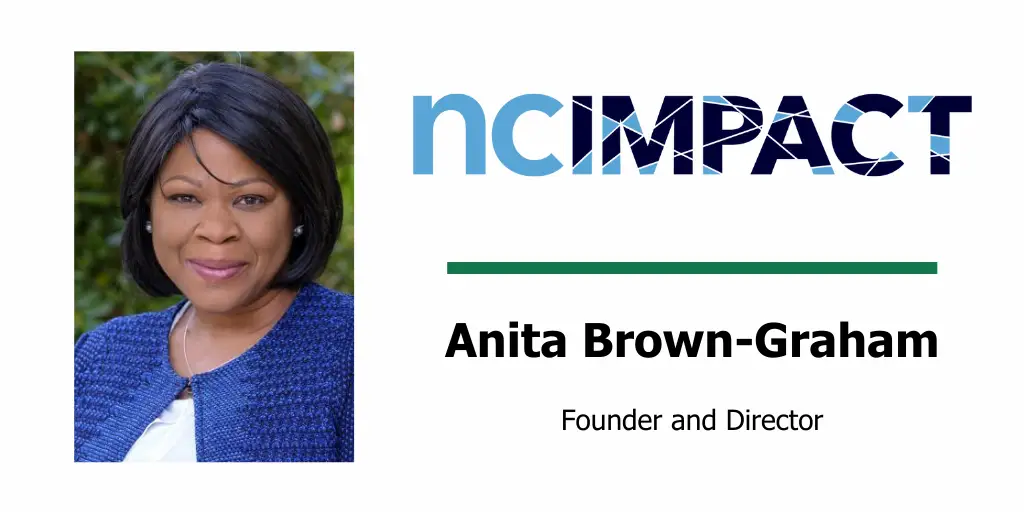Recently, Golden LEAF President, Chief Executive Officer Scott T. Hamilton sat down with the Founder and Director of ncIMPACT Anita Brown-Graham via Zoom and filmed an episode of Critical Conversations. In this series, Scott talks with professionals about economic development issues affecting the state.
As the leader of ncIMPACT at the University of North Carolina School of Government, Brown-Graham works with local governments to use data-driven strategies to address complex community challenges. Her earlier faculty roles at the University of North Carolina at Chapel Hill focused on civil liability and community and economic development aimed at revitalizing struggling areas. From 2007 to 2016, she directed the Institute for Emerging Issues (IEI) at North Carolina State University, where she led statewide efforts to strengthen North Carolina’s economic competitiveness by engaging leaders from business, government, and education.
Launched in 2017 by the University of North Carolina School of Government, the ncIMPACT Initiative supports communities across North Carolina by helping local leaders apply data-driven, evidence-based solutions to complex policy issues. The initiative expands the School’s capacity to address challenges such as economic mobility, prekindergarten access, and workforce development.
Brown-Graham shared that ncIMPACT’s priorities and strategies are grounded in the needs of the communities they serve. Rather than setting their own substantive priorities, ncIMPACT depends on communities to articulate what matters most to them. Brown-Graham explained that their role is to convene the right experts to help those communities achieve their self-identified goals. She added that ncIMPACT’s strategy is to deeply experiment in communities. She emphasized that ncIMPACT aims to meet people where they are and is committed to sharing its learnings widely. The team spends significant time traveling to talk about not only their own work but also the innovative efforts of others, said Brown-Graham.
ncIMPACT hosts a PBS television program that showcases collaborations between communities and professionals working to address local challenges. Brown-Graham also highlighted the organization’s focus on fostering a culture of innovation—especially in low-capacity communities. She said that ncIMPACT seeks out high-risk, high-return solutions because without bold approaches, communities are unlikely to see substantial improvement in the years ahead.
One of their major initiatives, Carolina Across 100, is a university-led project that began in 2021 in the wake of the pandemic. Brown-Graham explained that over the course of a year, her team engaged with leaders in every North Carolina county, asking them to identify their most pressing challenges. While responses varied, common themes emerged—educational disruptions, economic instability, and housing affordability topped many lists, added Brown-Graham.
When it comes to measuring success, Brown-Graham said ncIMPACT uses two main approaches. First, they track stable performance indicators to assess whether they are delivering value. Second, they develop shared measurement systems in partnership with communities, asking them to define what success looks like in their context. She explained that it is important, for their purposes, for the people they are working with to be invested in the story they are creating rather than feeling burdened by funder-driven reporting requirements.
Because much of ncIMPACT’s work is cross-sector, the relevant metrics often vary, said Brown-Graham. For example, in efforts to improve educational attainment, the local chamber of commerce may be focused on labor supply, while community colleges are looking at student growth, and nonprofit organizations have yet other benchmarks. Brown-Graham added, their goal is to craft a narrative that resonates with all stakeholders and reflects their unique priorities.
For those interested in learning more about or partnering with ncIMPACT, visit ncimpact.sog.unc.edu.

